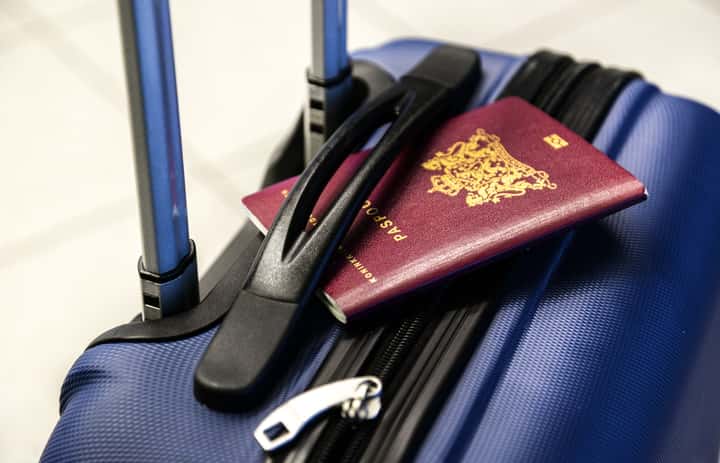Is it difficult to immigrate to Japan? Introducing the residence visa required to immigrate to Japan.

インターネットが普及し、どこでも仕事ができるようになった昨今、気軽に様々な場所で生活し、自宅で仕事をされる人が増えています。物価が安く気候も良い東南アジアが人気ではありますが、治安も良く比較的なんでも揃う日本も移住先として人気が出ています。
ただ一方で問題なのは、その国に住むために必要な在留資格(ビザ)を得るため、必要な手続きをしなければいけません。在留資格に関しても多くの種類があり、それぞれ条件が異なります。
今回は日本に住むために必要なビザの種類やビザ獲得の条件を紹介していきます。
在留資格のあるビザの種類とそれぞれの条件

今回ここでご紹介するビザは、長期滞在や就労などを目的としたものになります。旅行での短期滞在や医療受診のための滞在、外交などで滞在する場合のビザではまた別にありますので、詳しくは日本の外務省などのホームページを参照してください。
ビザの申請には基本的には申請者本人が手続きする必要があり、お住いの国にある日本大使館や日本領事館もしくは日本にある出入国在留管理局で手続きする事が可能です。
就業ビザ
こちらの就業ビザは、就業する業務内容により在留資格が異なります。また申請された業務内容に応じて、日本に滞在できる期間も異なります。
期間については、ビザ申請者や就労先が決定できるものではなく、在留資格を交付される際に出入国在留管理局で期間の判断がされます。在留期間は3か月、1年、3年、5年です。
就業の種類は、教授、芸術、宗教、報道、経営・管理、法律・会計業務、医療、研究、教育、技術、人文知識・国際業務、介護、興行、技能、特定技能、技能実習とあります。
これらのビザは在留資格を得た業務のみ就労が可能であり、他の業務や転職をする際はビザを申請し直す必要があります。
またこれらのビザ取得には召喚する日本側の企業等の書類も必要となるため、業務に従事するために就職活動を日本でする場合はビザの申請が認められません。そのためビザ申請前に就労先を探す必要があります。
参考:就労や長期滞在を目的とする場合|外務省 https://www.mofa.go.jp/mofaj/toko/visa/chouki/
一般ビザ
こちらの一般ビザは、文化活動、留学、研修、家族滞在という種類に分けられます。
文化活動ビザ
文化活動ビザは、日本の文化や伝統技能を学ぶために設けられたビザです。就業ビザとは異なり収入を得ることはできません。在留期間は、3か月、6か月、1年、3年となります。
college student visa
留学ビザは、大学や専門学校、日本語学校等の学生に認められたものです。就業内容に制限はありますが、週28時間以内のアルバイトが認められています。
留学ビザで認められる在留期間は、3か月、6か月、1年、1年3か月、2年、2年3か月、3年、3年3か月、4年、4年3か月となります。
研修ビザ
研修ビザは、日本の技術・技能または知識を修得する目的のビザです。一般企業等が招へいする場合、実務研修を伴わない非実務研修のみ認められます。
実務研修が含まれる場合は、就業ビザの技能実習のビザの申請が必要となります。しかし国や地方公共団体、独立行政法人などの公共の機関のみ、実務を伴う研修がこの研修ビザでは認められています。
こちらのビザは研修が目的のため、雇用契約は結べません。そのため賃金を受け取ることはできませんが、生活資金の範囲内で研修手当を受けることができます。在留期間は、3か月、6か月、1年です。
Family Resident Visa
家族滞在ビザは、就業ビザや留学ビザなどをもって日本に滞在する外国人の配偶者や子どもに与えられるビザです。しかし就業ビザでも技能実習で在留資格を得ている外国人に対しては、基本的に家族の帯同が認められておりません。
また留学ビザに関しては、家族を扶養するために必要な経済力が証明されれば認められます。
法律的に有効な婚姻関係の配偶者のみであり、内縁の配偶者が認められていません。また子どもに関しても、扶養している実子または養子でのみ認められ、経済的に自立している子どもは認められておりません。
家族滞在でのビザでは就労は許可されておりませんが、資格外活動許可を得ている場合に限って、週28時間以内のアルバイトが許可されております。
滞在期間は、3か月、6か月、1年、1年3か月、2年、2年3か月、3年、3年3か月、4年、4年3か月、5年です。
参考:就労や長期滞在を目的とする場合|外務省 https://www.mofa.go.jp/mofaj/toko/visa/chouki/
特定ビザ
こちらの特定ビザは、日本人の配偶者等や永住者の配偶者、定住者、特定活動に分類されます。
日本人の配偶者等は、日本人の配偶者や日本人の特別養子、日本人の子として出生したものに与えられるビザになります。日本人に扶養能力がない場合においても、外国人配偶者に扶養能力があり、経済的に問題がなければビザが認められます。
またこちらのビザでは、日本で行う活動の範囲に制限がありません。滞在期間は、6か月、1年、3年、5年です。
永住者の配偶者では、永住者または特別永住者と婚姻した配偶者が該当します。日本人の配偶者等と同様に活動に制限が設けられておりません。滞在期間も日本人の配偶者等と同じ、6か月、1年、3年、5年となります。
定住者は、日系人や特定の国からの難民や、永住者と永住者配偶者との間に生まれた子どもがこのビザに該当します。この種類のビザも活動の範囲に制限が設けられていないのが特徴です。滞在期間は、6か月、1年、3年、5年です。
最後に特定活動ビザは、インターンシップやワーキングホリデー、アマチュアスポーツ選手とその配偶者、老親扶養、出国準備、難民申請中、就職活動、外交官などの家事使用人、観光や保養を目的とするロングステイなどが該当します。この特定活動のビザはそれぞれの条件で活動できる範囲及び滞在許可される機関も異なります。
ビザ申請に必要な書類とは

旅券、ビザ申請書1通、写真1枚(ロシア、独立国家共同体のCIA諸国、ジョージア人は2枚必要)、在留資格認定証明書原本及び写し1通が必要です。
在留資格認定証明書とは、入国管理局において発行される証明書であり、日本国内にお住いの代理人による申請が可能となっています。ただしワーキングホリデーやEPA看護師候補等は、在留資格認定証明書が交付されない事もあるので、事前にお住いの日本大使館や領事館にお問い合わせをする必要があります。
中国籍の方は、これ以外に戸口簿写し及び暫住証または居住証明書が必要です。またビザの種類には雇用契約や履歴書、質問票、卒業証明書などが必要になることもあります。
参考:就労・長期滞在査証(ビザ)手続きチャート|外務省 https://www.mofa.go.jp/mofaj/toko/visa/nagare/chouki.html
summary
いかがでしょうか。
日本に中長期滞在するためのビザをざっと上げてみましたが、様々種類がありまたそれぞれ取得するための条件が異なります。
自分がどの種類のビザで日本に滞在をしたいのか、またご自身の国によっても必要となる書類が異なります。
詳しくは、外務省や出入国管理局、またはお住いの国にある日本大使館および領事館にお問い合わせ下さい。






